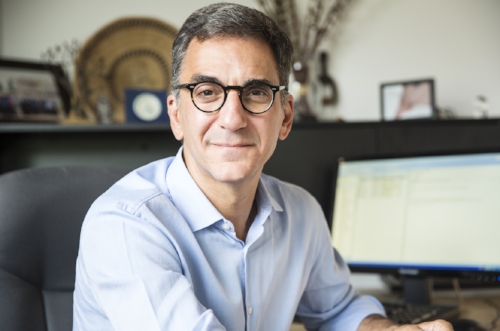Michael Schlein, CEO and President, Accion

Tell us about Accion, what you do, and why your work matters?
Around the world, three billion people are left out of or poorly served by the formal financial sector. Life is so much harder for them: they lack a safe place to save. And it’s hard to send or receive money, protect against calamity, seize opportunities, or manage their day-to-day expenses. This lack has broader effects as well, stalling social and economic development.
Accion is a global nonprofit committed to creating a financially inclusive world. We want to build a financial system that works for the billions of people who today are left out, and provide them with the financial tools that they need to build better lives.
How does financial inclusion relate to or advance broader development goals?
The UN’s ambitious Sustainable Development Goals have changed the way we promote gender equality, address climate change, provide quality housing, and make a more equitable, prosperous world.
We can’t overlook the importance of inclusive finance in striving to make the world a better place. With financial services, small business owners can expand and create more jobs. Farmers can bounce back from a failed crop. Parents can buy food and pay their children’s tuition. Families can pay for healthcare. High-quality financial services ensure that people can build better futures for their families and communities; they help create the foundation for a better world.
Accion helped pioneer impact investments long before the term even existed; how do you apply the lessons you’ve learned in investing in microfinance institutions to new fintech startups?
We’ve learned a lot over the more than 50 years we’ve spent helping to create a financial system that works for everyone. Today we’re focused on using those lessons to ensure that the digital transformation of financial services benefits the world’s three billion underserved people.
But the fundamentals of what we’re looking for haven’t changed: we look for new solutions and ideas that create better, faster, cheaper, and safer financial services for the underserved. We value ideas or companies that can scale to meet the needs of their communities, and we make double-bottom line investments that create a social impact and financial returns.
What will you be discussing at The Economist's Impact Investing event in New York on February 15?
I’m looking forward to discussing how investors can revive the American dream and provide better jobs, housing, and healthcare with Andy and Jim.
But to revive the American dream, we first have to create a financial sector that works for everyone. Accion’s partners – both in the U.S. and in emerging markets like India, Peru, and China – can teach us how to extend financial services to more Americans.
Look at credit: tens of millions of Americans have no access to formal credit, not because they have bad credit histories, but because they have no credit histories. International fintech startups are using alternative data to change that, combining e-commerce, social media, utilities payments, and other data to construct detailed information about borrowers and to help get them the credit they need.
Where have you seen impact investments make the biggest strides in recent years?
Impact investing in inclusive fintech has made tremendous strides, creating social impact and financial profits. Last year, Accion announced the close of the first global fintech fund for the underserved, the Accion Frontier Inclusion Fund, managed by Quona Capital. The Fund signals investors’ willingness to back inclusive fintech and these new solutions’ potential to help the underserved. It attracted $141 million in commitments from an array of leading institutional investors; Accion is proud to be the Fund’s sponsor, general partner, and anchor investor. Additionally, Accion Venture Lab, our seed-stage investment initiative, successfully exited from Varthana and Clip.
What are some of the trends you’re seeing in the impact investing space? What challenges do you see for the future of purpose-driven finance?
We’re watching several new trends that are reshaping impact investments in inclusive fintech. One is the growing availability and quality of data, along with our ability to interpret that data. In 2012, every half hour the internet and internet-connected devices generated digital data equal to all the written works in human history.
As smartphones and other internet-connected devices become more available, they’ll generate more information about their users’ behaviors, priorities, and financial capabilities. Financial service providers can use that data to make informed decisions about their clients.
Despite fintech’s potential, making successful impact investments in inclusive fintech is challenging. Impact investors must emphasize the value that their partners’ financial services provide: products must be well-designed and clearly better than the status quo. And, like every startup, fintechs need funding, mentors, and strategic guidance to help good ideas transform into thriving businesses.
Why is impact investing important to your work?
Accion’s impact investments help scale successful models that can harness the capital markets and create stable, thriving, and competitive financial services for the underserved. Our goal is to create demonstration models that encourage other businesses and investors to act.
New fintech solutions have tremendous potential to reach the world’s underserved people – they need adequate resources to grow large enough to address complex, global problems.